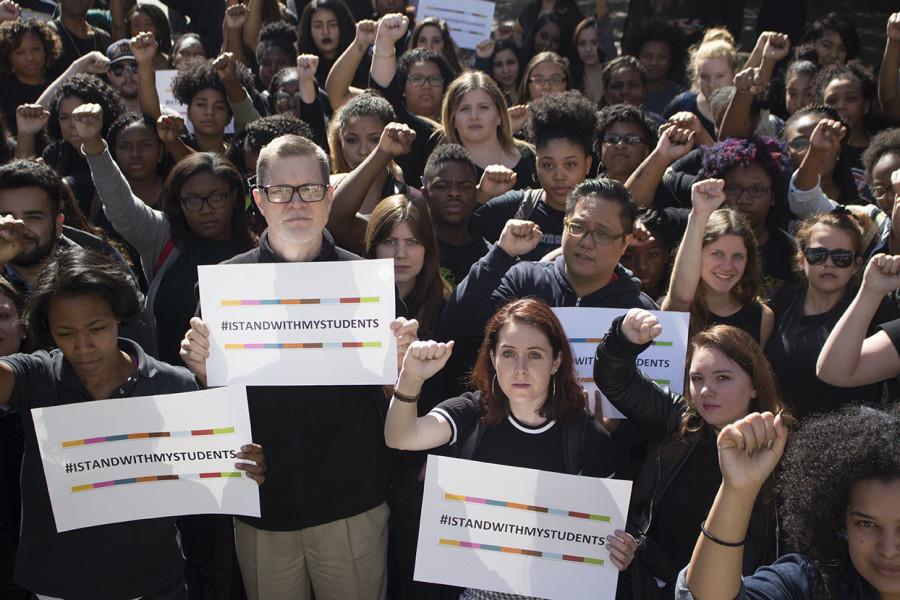Editorial: Petitioning against student unrest
December 6, 2015
In the wake of the campus protests on race sweeping across the nation, Loyola’s Black Student Union, the L.O.V.E Chapter of the National Association of Colored Women’s Clubs and Brothers for Progress, created a set of demands for the Rev. Kevin Wildes, S.J. to accept. While student activism is praiseworthy, the jump to these demands, and threats to cause student unrest, are unfair.
For many, these demands came out of nowhere. Loyola has been named by The Princeton Review as the second best college in the United States for race and class interaction. Our university can boast that 39 percent of its student body are members of ethnic minorities.
This isn’t to say that there isn’t any racism in academia, nor is it to say that the concerns presented in the petition are wrong or unfounded.
It is only to say that there should be a more robust dialogue about race issues before protests begin.
Racism should be unequivocally and universally opposed by anyone who values justice. While opposition to racism is virtuous and just, threatening to cause student unrest without having a dialogue about the issues is not.
After returning from the Thanksgiving break, Wildes sent an email to all students saying that he met with the authors of the petition to discuss their concerns with him. As The Maroon previously editorialized, when faced by a group of students who claim they feel uncomfortable about a situation, the University President should seriously consider their concerns. Wildes was quick to do this, which demonstrates that our univeristy is committed to the cause of justice.
Loyola offers the perfect environment to have a meaningful conversation about race issues. There hasn’t yet been a campus-wide conversation about systemic racism
on campus.
Petitions and protests are for when the conversation fails. They should not preclude conversation, and can’t serve as a substitute for conversation.
Now is the time to open a dialogue on race issues. The administrators are willing to have that dialogue, and the student body is aware that many of us feel uncomfortable. We should go forward to discuss and confront the issue in a new and more meaningful way.
The editorial represents the majority opinions of The Maroon’s editorial board and do not necessarily reflect the opinions of Loyola University.








